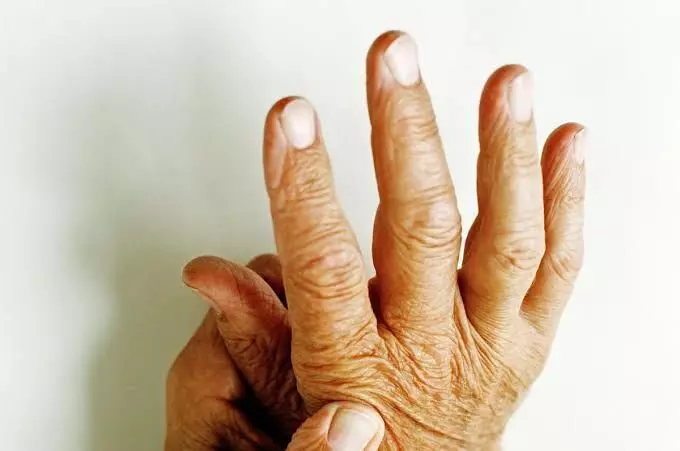People living with arthritis have 200% greater risk of heart attack: Study
A terrible sickness saps the confidence of the person suffering from the disease. Depression is twice as frequent in people with inflammatory arthritis.
By Sumavarsha kandula
Hyderabad: New research has revealed that at least six crore people in India are suffering from arthritis. Diseases associated with arthritis are frequently overlooked and dismissed as a normal part of the aging process. Because of this misperception, many people do not seek treatment for their ailment.
Department of Rheumatology at KIMS Hospitals, Secunderabad, along with the IRA, organized World Arthritis Day on October 11 to raise awareness about various arthritic disorders. Indian Rheumatology Association (IRA) is the professional organization of rheumatologists and other health professionals in India.
At KIMS Hospitals, patients, their families and friends, physiotherapists, nurses, PGs, and physicians participated in the `Arthritis Awareness Program'. Dr. Bollineni Bhaskar Rao was the keynote speaker. He released the book `The Myths and Facts' on this occasion. Penned by leading doctors of KIMS, the book addresses widespread health misconceptions.
Clinical Director Dr. Sarath Chandra Mouli chaired the awareness session. It was attended by three rheumatologists, Dr. Jugal Kishore, Dr. Srisaila Datta, and Dr. Suvarna Shilpa.
Apart from being painful, arthritic conditions can be fatal, affecting several organs such as the lungs, heart, and kidneys. People living with arthritis have 200% risk of heart attack, nearly 150% increased risk of stroke and a greater risk of acquiring cancer. Their bodies age more quickly. They age almost 10 years than their actual age.
More than 100 different disorders can cause arthritis. These include osteoarthritis, rheumatoid arthritis, ankylosing spondylitis, systemic lupus erythematosus (lupus), and psoriatic arthritis. These disorders can affect people of any age including children, young adults, and the middle-aged population. It is not limited to the old.
A terrible sickness saps the confidence of the person suffering from the disease. Depression is twice as frequent in people with inflammatory arthritis.
What about the treatment, and how it affects everyday life?
The cost of treating rheumatoid arthritis, also known as autoimmune joint arthritis, is estimated to be roughly Rs 53,000 annually. In addition to the financial burden, it impacts family life. Women are afflicted more than males. When the lady of the house develops a chronic rheumatological condition, the entire family suffers, especially the children. Children or spouses have to take time off work to accompany the woman to the hospital, resulting in increased out-of-pocket expenses, lost working hours, and decreased productivity.
The condition is excruciating and significantly interferes with daily tasks. It is usual for people with arthritis to experience social isolation and even job loss. According to Indian research, three out of every four people with rheumatoid arthritis had impaired job capability, and one out of every five had to quit working permanently.
What are the options with insurance policies?
The patient and their family must bear the disease's direct and indirect financial cost since third-party payers' (Insurance) policy to cover conditions with arthritis remains unscientific, biased, and outdated. The vast majority of them are chronic and untreatable.
As a result, current practices in insurance and healthcare delivery arrangements in India omit reimbursement benefits offered by the bulk of third-party payers abroad. Given the current innovative treatment and management procedures, these reimbursement criteria developed decades ago require a complete overhaul.
Myths and misconceptions:
Many myths and misconceptions surround illnesses that cause arthritis and rheumatological problems. Recent advancements in illness management have made therapy more accessible and dramatically enhanced the quality of life for treated individuals. However, treatment is underutilized in public and private institutions due to a lack of understanding.
This causes a great deal of unnecessary agony and suffering for the patients. They frequently do not seek aid at the proper time and suffer due to the delay.
In this event, patients asked questions during the interactive session, to which senior rheumatologists responded. Some patients told the audience about their successes.
One of them from Nizamabad shared his ordeal. "I'm K. Simon Paul, a 10th-grader. I've been sick since March 2020. During that time, I tried every major hospital in Nizamabad. Nobody could tell me what hurt me. I was sent to KIMS Hospital, Secunderabad when my condition was serious. I spent days in the ER. The rheumatology department tested and diagnosed me with SLE. I'm thankful to Dr. Sarath Chandra Mouli and his team. Since then, I've been receiving counseling and can attend school frequently."
Another patient said: "I was 16 when the symptoms first appeared. My first sign was pale, heavy fingers from cold weather followed by joint drawings and blood tests. I've had various autoimmune problems. Dr. Sharath's treatment helped me overcome severe neck arthritis. My diagnosis changed from scleroderma to Raynaud's, but meds are helping."
Observing World Arthritis Day was aimed to sensitize the general public about illness. On this day, several organizations worldwide hold events to raise awareness of these diseases. Even though World Arthritis Day has been observed for many years, research in India has revealed that patients experience a two-year wait between symptoms begin.
This year, the Indian Rheumatology Association is doing a pan-India campaign to raise awareness. They said the medicine has been developed and people no longer have to suffer from the misery of arthritis. As a result, `Arthritis is Treatable' was a pledge that everyone took.